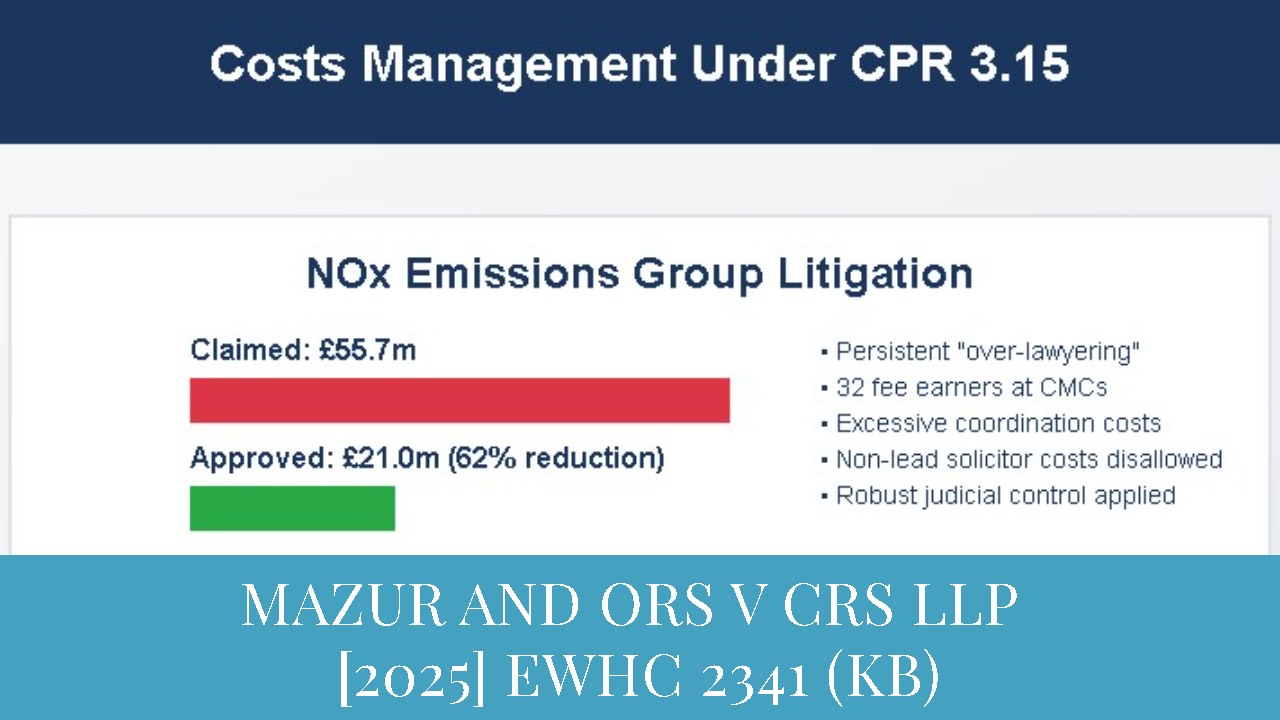Background
This legal judgment concerns a complex personal injury claim arising from a tragic road traffic accident that occurred on 31 March 2018 involving multiple parties. The primary claimant, Mr Leon Zavorotnii, a Moldovan resident in the United Kingdom, suffered severe and life-altering injuries when travelling as a passenger in a vehicle driven by Mr Lucasz Malinowski, both of whom were employed as night shift cleaners at the Norton Industrial Estate in North Yorkshire.
The accident transpired when Mr Malinowski’s VW Bora vehicle collided with a stationary Volvo HGV tractor and trailer parked roadside without illumination. Mr Malinowski subsequently pleaded guilty to driving without due care and attention, while the HGV driver, Mr Plamen Nikolov, pleaded guilty to allowing a vehicle to remain stationary during darkness without lights.
The proceedings were characterised by significant procedural complexity, notably including claims initiated outside the standard three-year limitation period. Judge Walden-Smith exercised discretion under Section 33 of the Limitation Act 1980 to allow the proceedings to continue against Mr Malinowski, recognising the substantial nature of the claim.
Mr Zavorotnii alleged extensive personal injuries, including skull and facial fractures, severe traumatic brain injury, dental damage, psychiatric and psychological trauma, sensory impairments, and potential long-term neurocognitive disabilities. These injuries were alleged to have comprehensively disrupted the claimant’s educational and professional prospects, potentially rendering him unable to live independently.
Costs Issues Before the Court
The primary costs issue centred on the approach to be taken regarding costs orders following a discrete costs management hearing. Specifically, the court was required to determine whether the standard “costs in the case” order was appropriate, or whether an alternative costs order might be justified given the parties’ conduct during costs budgeting.
The Parties’ Positions
The defendant, Mr Malinowski, argued that the court should depart from the conventional “costs in the case” order. He submitted that the claimant had presented an unrealistically high and ambitious costs budget, necessitating significant judicial intervention and time expenditure during the costs management process.
The claimant contended that the costs management hearing was routine and that the standard “costs in the case” order should be maintained. They suggested that any criticism of their costs budget should be limited to a cautionary “shot across the bow” for future proceedings.
The Court’s Decision
After careful consideration, Judge Walden-Smith determined that while the “costs in the case” order would be maintained in this instance, the judgment represented an important commentary on costs management practices. The court recognised that CPR 44.2 provides significant judicial discretion in costs orders.
The judgment highlighted that the claimant’s costs budget was significantly reduced from £511,125.30 to £308,909.30 – a reduction of £202,216 and representing only 60% of the original claim. While the claimant achieved some success by obtaining an 18.2% increase over the defendant’s offered budget, the court viewed the original budget as verging on being “unrealistic”.
Critically, the judgment warned that future costs management hearings might result in adverse costs orders against parties presenting manifestly inflated or unreasonable costs budgets. This represents a potentially significant development in judicial approach to costs management, signalling increased scrutiny and potential financial consequences for parties presenting excessive or poorly prepared cost estimates.


![FERNANDEZ V FERNANDEZ [2025] EWHC 2373 (Ch)](https://tmclegal.co.uk/wp-content/uploads/2025/09/Willis-Title-copy-copy-copy-copy-6.jpg)


![STOCKLER AND ANOTHER V THE CORPORATION OF THE HALL OF ARTS AND SCIENCES [2025] EWHC 2262 (SCCO)](https://tmclegal.co.uk/wp-content/uploads/2025/09/YT-Thumb-300x169.webp)












